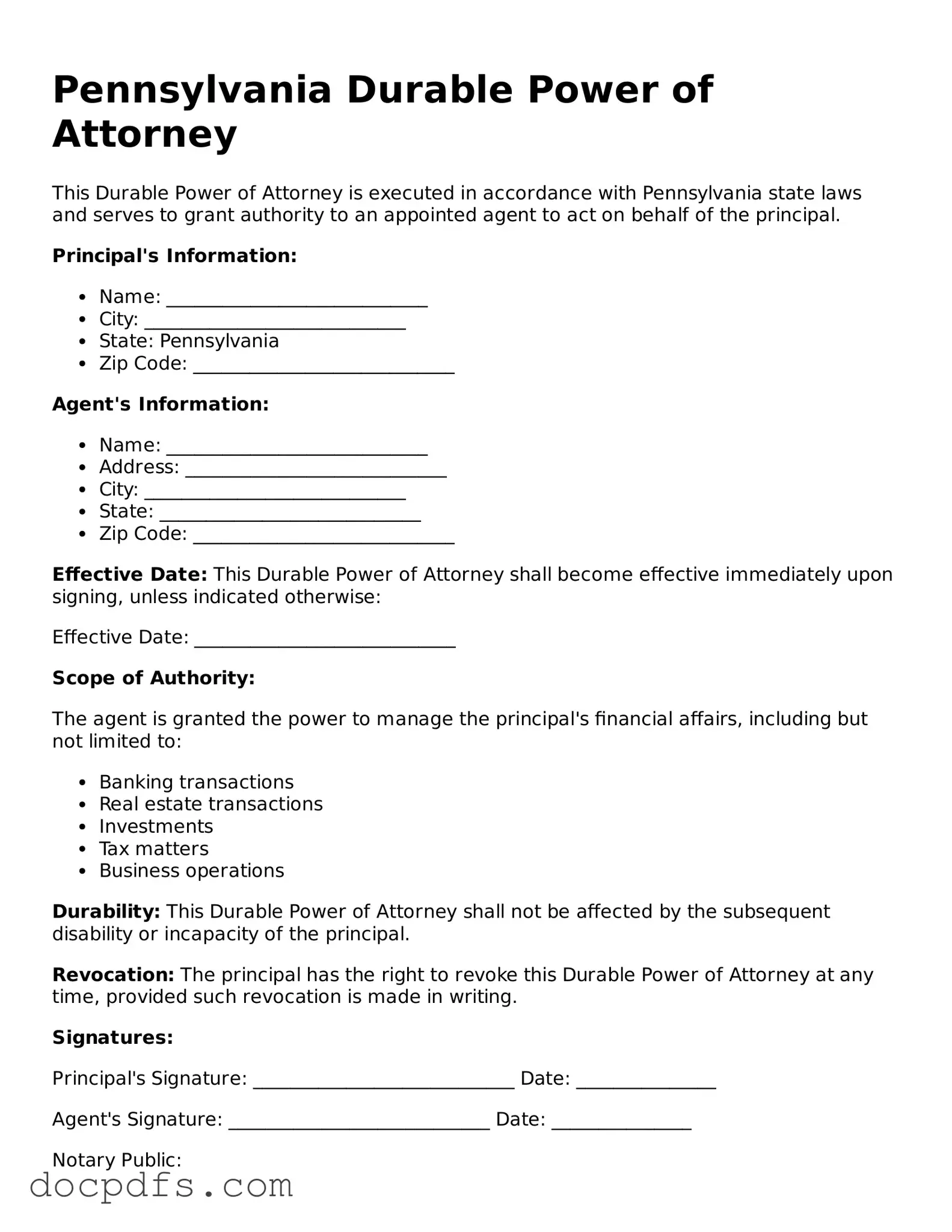Free Pennsylvania Durable Power of Attorney Form
A Pennsylvania Durable Power of Attorney form is a legal document that allows an individual to appoint someone else to make decisions on their behalf, particularly in financial or medical matters. This form remains effective even if the individual becomes incapacitated. Understanding how to properly execute and utilize this document is crucial for ensuring that your wishes are honored when you are unable to communicate them yourself.
Open Durable Power of Attorney Editor Now

Free Pennsylvania Durable Power of Attorney Form
Open Durable Power of Attorney Editor Now

Open Durable Power of Attorney Editor Now
or
⇓ Durable Power of Attorney
Finish this form the fast way
Complete Durable Power of Attorney online with a smooth editing experience.